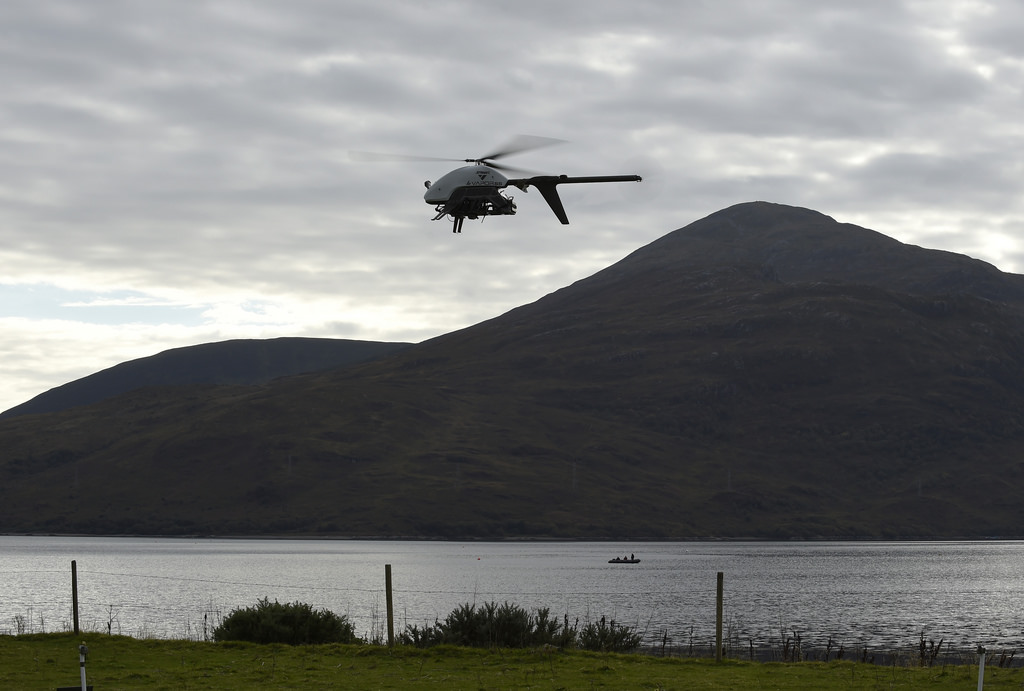This post is also available in:
 עברית (Hebrew)
עברית (Hebrew)
A UAS battlefield demonstrator program has gained momentum in the UK. In what turned out to be a crucial speech at the University of Oxford, the UK’s Defence Secretary, Michael Fallon, announced the launch of a two-year £8 million second phase of innovative research and development, exploring the future of unmanned air systems.
The program, developed in partnership with Leonardo Helicopters, the Rotary Wing Unmanned Air Systems (RWUAS) Capability Concept Demonstrator will be a vital tool in discovering how unmanned air systems can support personnel on the battlefield of the future by developing new concepts and technologies.
Minister for Defence Procurement Harriett Baldwin said: “Supported by our rising defense budget and £178 billion Equipment Plan, we want to transform defense and work with industry, academics and allies to find innovative ways to stay at the international cutting edge. This two-year £8 million joint investment will sustain key high-skill jobs in Yeovil and is the next stage in understanding how unmanned air systems can keep our personnel safe on the battlefields of the future.”
Leonardo’s Chief Executive Officer and General Manager Mauro Moretti added “This is an exciting time as the opportunities presented by unmanned technologies start to be realized in the vertical take-off and landing sector. These technologies and systems can be a game changer in terms of undertaking a wide range of autonomous operations at a significantly lower cost.”
According to the ministry of defence’s press release, the contract will cover the completion of research and development activity begun under the “RWUAS CCD Phase 1” program between 2013 and 2015 and will then extend this to undertake further research, development, analysis and experimentation relating to rotary winged air-vehicle technologies and rotary wing platform operations.
In placing the contract, the two organizations will enter into a program of fundamental and applied research and experimentation to mature, develop the understanding of an advanced technology, overall system design and operational capabilities to enable embarked, unmanned rotary wing aircraft operations. The program will utilize the specialist engineering skill base at Leonardo, to demonstrate new methods and technologies to reduce the risks associated with rotary wing operations in other similarly challenging operating environments, including supporting regulatory development in this area.


























